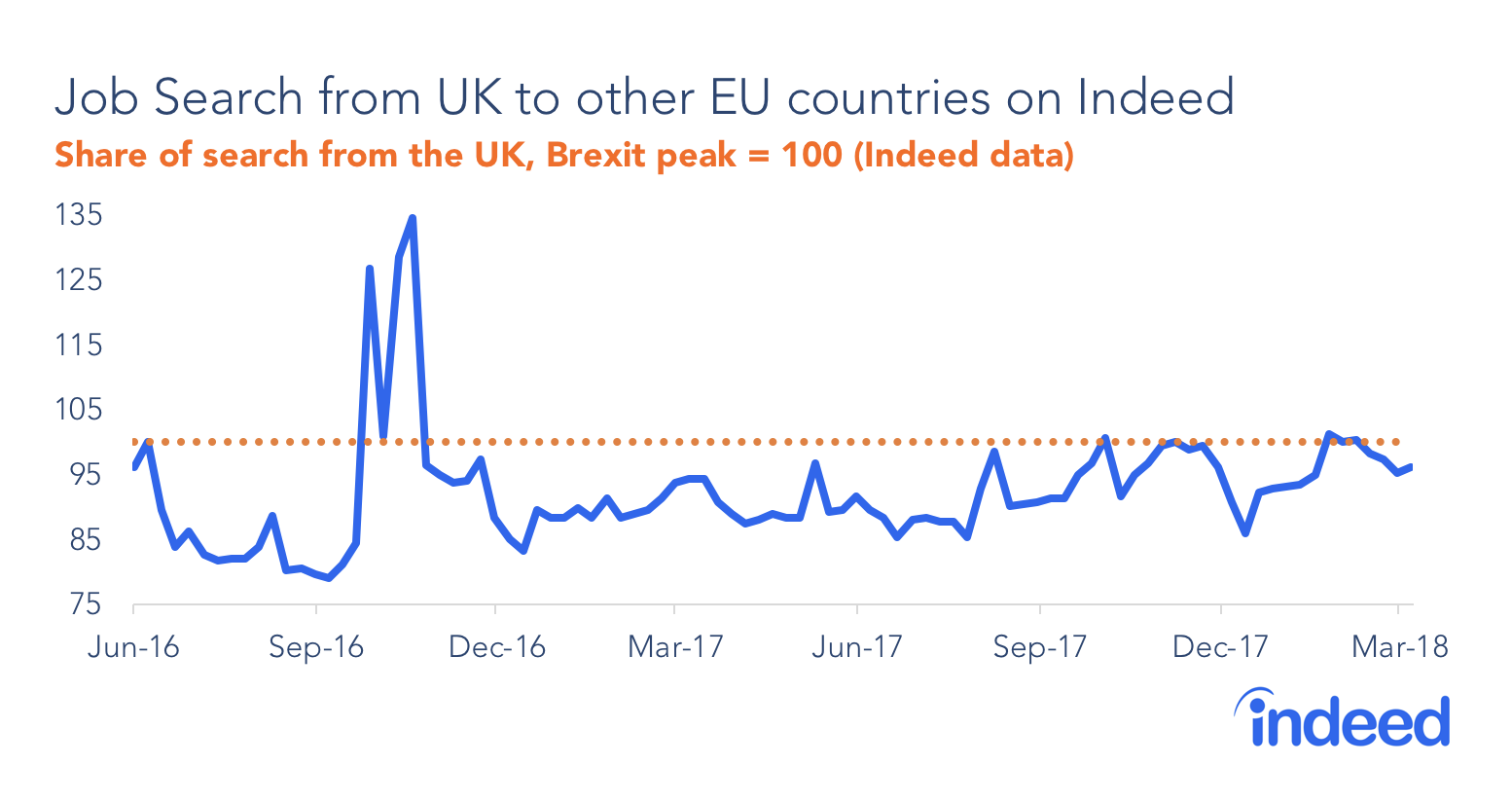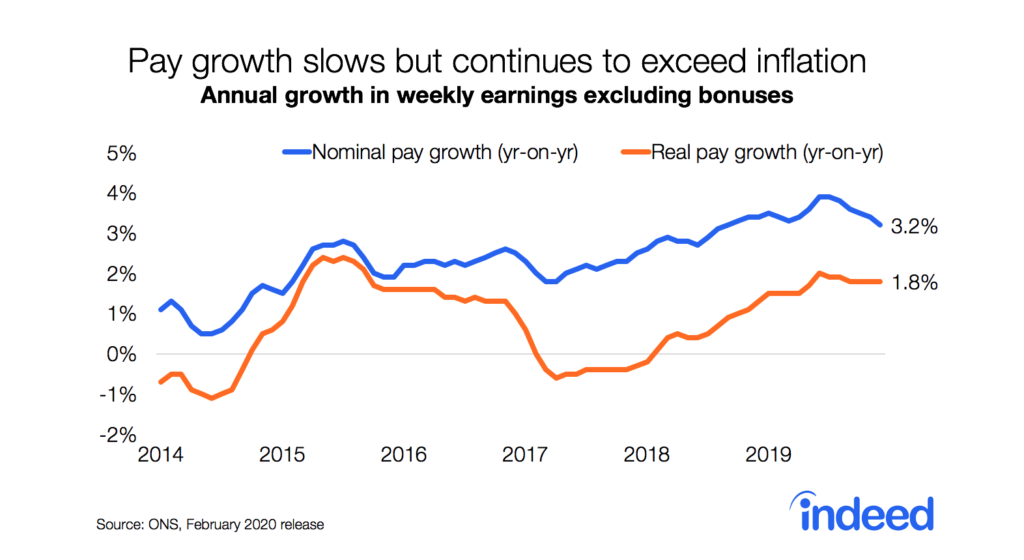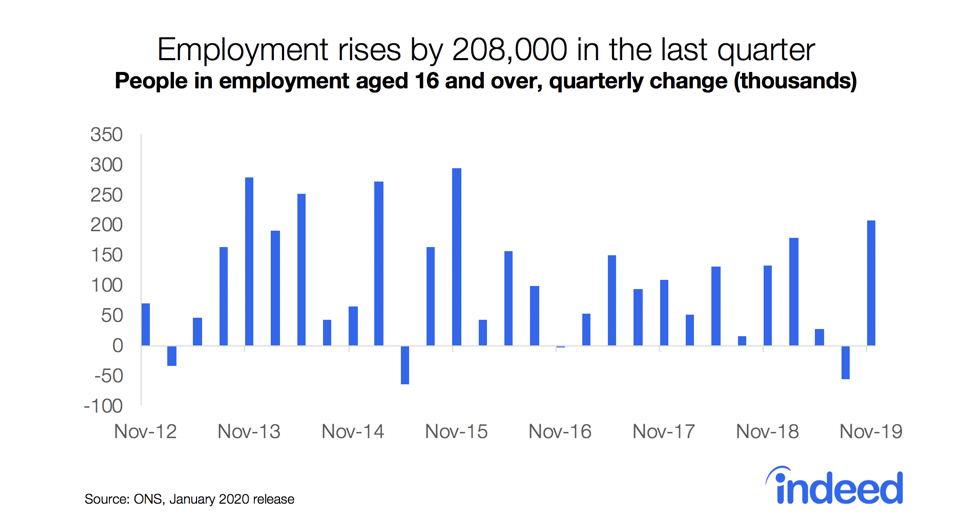As policymakers, business leaders, and households try to understand what a post-Brexit world will look like, jobseekers are already taking action—by searching for work outside of the United Kingdom in the European Union.
As of the end of March, Indeed Hiring Lab has seen jobseekers based in the UK searching for jobs in the EU at rates similar to what we saw at the peak after the Brexit referendum in June of 2016. We saw another spike in EU-focused job search around the Conservative Party Conference in October of 2016 when Theresa May gave her Brexit speech, but that spike quickly reversed and dropped below the Brexit vote peak. Since the beginning of 2017, however, as Brexit has inched closer, job search directed at the EU has inched upwards. This time, rather than an event-related spike, it is a slowly moving trend, with the share of searches from the UK directed to EU being 15.2% higher in the first quarter of 2018 as compared to the first quarter of 2016.

Meanwhile, a deeper analysis on the connection between job search, migration, and the role of EU membership, building on past Indeed Hiring Lab research, was released today as a working paper by the Institute for International Economic Policy. In the paper, “Migration and Online Job Search: a Gravity Model Approach,” we show that the same factors that determine migration also determine job search patterns, suggesting that our job search data tell us something meaningful about future moves, rather than just being wishful thinking on the part of jobseekers.
We also look at what role being an EU member plays in job search, and find that “leaving the EU may have international immigration impacts similar to increasing the distance between the leaver and the other EU countries by over one third.” The specific effects on the UK’s workforce will depend on what type of Brexit is finally settled upon, but our analysis, which includes Norway and Canada as non-EU countries, suggests that leaving the EU will likely impact the UK supply of labour for the long term.





